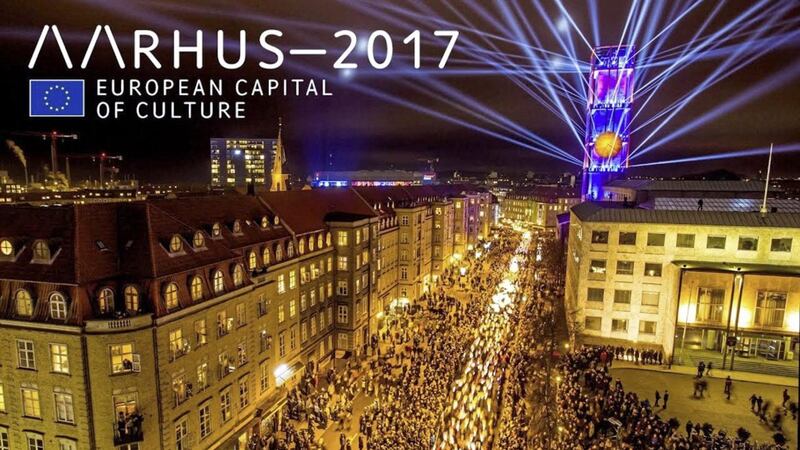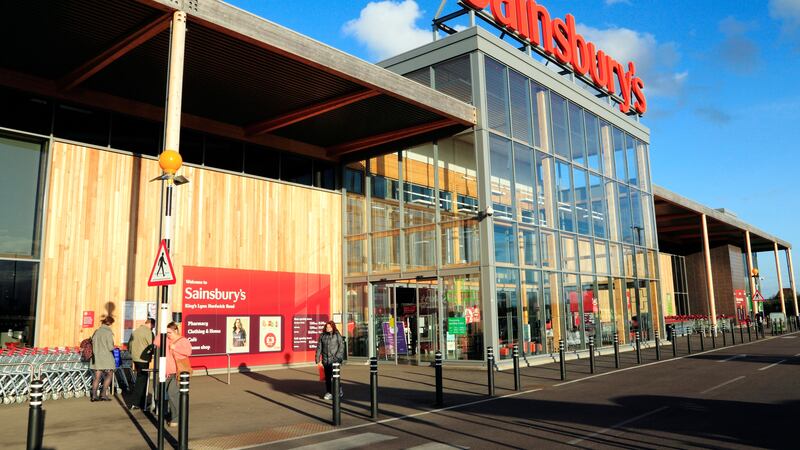BREXIT has probably cost Belfast and Derry the thick end of £1 billion in cultural, social and economic benefits, a new report has suggested.
As revealed by the Irish News, the cities' joint bid to become European Capital of Culture in 2023 was scuppered last October, more than a year after the vote to leave the EU.
They had been planning a £55 million public and private sector-funded bid to win the right to host the special year of events, and had estimated a return of at least ten times that.
But the full extent of the lost opportunity has been laid bare after a report released in Brussels yesterday revealed a bumper bonanza for last year's European Capital of Culture Aarhus.
Denmark's second city has a population of just 273,000 people compared to 295,000 in Belfast and 107,000 in Derry. Add on the greater city catchment for and it comes in at 340,000 and 690,000 respectively
Yet an economic impact assessment showed that the cultural, social and economic benefits of Aarhus 2017 surpassed expectations, as overnight stays in the Central Denmark region rose by 19 per cent to a record high of 11.2 million while businesses saw a €159.1 million (£131m) surge in turnover and 2,000 new jobs were created.
"Belfast wanted to be the 2023 European Capital of Culture and had a great chance of getting the title until Brexit came along. Just look what it has potentially missed out on," one Brussels official told the Irish News yesterday.
Aarhus 2017 chief executive Rebecca Matthews said yesterday the results show how investment in culture can impact the bottom line.
“This is a strong message for the future. The hard data and the economics are, of course, important and we’re pleased our year has delivered on this. Equally so is how we managed to engage citizens, as audiences, participants and artists across Jutland and beyond,” she said.
“The seeds we have planted in our year as European Capital of Culture will continue to grow in the rich soil of the new collaborations and partnerships formed, the emboldened cultural organisations and creative workers, the vision shared among municipal councils, and the citizens energised by the
cultural experience.”
Derry previously held the title of UK Capital of Culture in 2013, while Belfast failed in a bid to become European Capital of Culture in 2008. UK cities had previously been European Capital of Culture twice - Glasgow in 1990 and then Liverpool in 2008, where it is estimated that its £170m input garnered an £800m economic return.
Meanwhile a report on the economic impact of an all-Ireland economy has been published, considering what would happen if the economies of Northern Ireland and the Republic were to integrate and how Brexit will affect the north and south.
It points out that Brexit could damage the Northern Ireland economy in ways that reduce wages and jobs (accountancy firm EY has previously predicted that Northern Ireland will lose 3,500 jobs by 2020 compared to 2016, while the Republic will gain 91,000 jobs over the same period).
“Part of the reason for a widening gap in economic performance between the north and south has been poor policy decisions in Northern Ireland over many decades,” says report author Paul Gosling.
“The north’s economy failed to adjust from manufacturing dependence and politicians failed to provide the skills base needed here by employers and investors.
"Since the Good Friday Agreement the gap between the employment rate in the UK and that in Northern Ireland has actually grown – we have gone backwards in terms of economic performance compared to Great Britain. And that has not been helped by Invest NI not having the same success as the Republic’s IDA,” Mr Gosling says.
He added: "The devolution effect has been disappointing for Northern Ireland in terms of its economic impact.
"When the Good Friday Agreement was signed in April 1998, the north's employment rate was 65.4 per cent and by the end of last year had improved modestly to 68.7 per cent.
"Compare that to situation across Britain. At the time of the GFA the UK employment rate was 71.7 per cent, which increased to 75.6 per cent by the end of last year.
"So despite devolved government, Northern Ireland has gone from lagging the UK employment rate by 6.3 per cent to 6.9 per cent, meaning the differential has actually widened."








